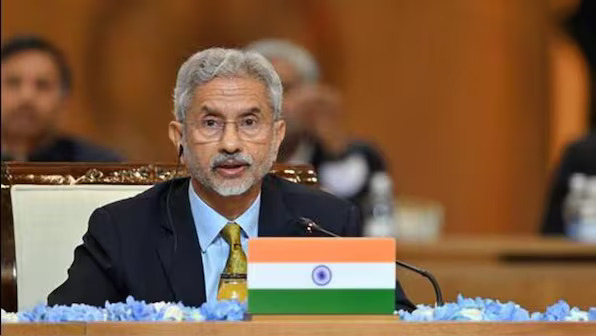The Shanghai Cooperation Organization (SCO) held its annual summit on July 3-4, 2024, in Kazakhstan. The main theme of the summit was “Strengthening Multilateral Dialogue—Striving for Sustainable Peace and Prosperity.” This article will analyze the key aspects of the summit, focusing on the absence of India’s Prime Minister Narendra Modi and India’s diplomatic strategies.
Absence of Prime Minister Narendra Modi
Prime Minister Narendra Modi, who has attended every summit since India joined the SCO in 2017, was not present this time. The main reasons were the commencement of the 18th Lok Sabha’s first session and the unresolved border dispute with China. PM Modi’s planned meetings with Russian leaders in Moscow also contributed to his absence, making it more significant.
Membership of Iran and Belarus
Iran participated as a full member despite the untimely death of its president, with Acting President Mohammad Mokhber attending instead. Belarus, a key ally of Russia in Europe, was also granted full membership. This expanded the SCO’s structure significantly, transforming it from a Central Asia, China, and Russia-focused group to a broader organization including India, Pakistan, Iran, and Belarus.
Influence of China and Russia
Initially, the SCO aimed to foster cooperation between China, Russia, and Central Asia. Now, it has become a ten-country organization. Some analysts believe this might dilute the SCO’s focus. China feels it has integrated its Central Asian neighbors into its Belt and Road Initiative. Russia is not as powerful as before, and China sees itself as playing a key role in Central Asia and Pakistan.
India’s Diplomacy
India’s External Affairs Minister S. Jaishankar delivered PM Modi’s speech, clarifying India’s perspective in the SCO. India emphasized its priorities on counterterrorism, supply chains, respecting countries’ sovereignty, and highlighted its previous SCO presidency and G20 events. India’s priorities under ‘SECURE’ SCO include security, economic cooperation, connectivity, unity, sovereignty respect, and environmental protection.
Issues of Terrorism and Sovereignty
India made its stance clear on terrorism, aiming to prevent the SCO from becoming a follower of China. Despite China’s efforts, India opposed attempts to guide the SCO’s Regional Anti-Terrorist Structure (RATS) according to its own understanding. Although China and Pakistan were not explicitly named, the speech aimed at addressing cross-border terrorism and the disrespect for member states’ sovereignty and territorial integrity, stressing that these issues are detrimental to SCO unity.
New Members and Dialogue Partners
The SCO still has Afghanistan and Mongolia as observers. Fourteen countries—Azerbaijan, Armenia, Bahrain, Cambodia, Egypt, Kuwait, Maldives, Myanmar, Nepal, Qatar, Saudi Arabia, Sri Lanka, Turkey, and UAE—are dialogue partners. As China supports the inclusion of some ASEAN countries in BRICS, it will be interesting to see if it promotes its allies within the SCO as well.
India’s Strategic Projects
India successfully highlighted the importance of the Chabahar Port and the North-South Transport Corridor (NSTC), linking Iran, Central Asia, and Russia with India. This offers an alternative to China’s struggling China-Pakistan Economic Corridor (CPEC). India’s partnership is seen as more open and welcoming.
India’s Contributions to SCO Declarations
India has often found itself alone while drafting SCO declarations, but this time it succeeded in incorporating its priorities. These include G20 themes like “One Earth, One Family, and One Future,” digital public infrastructure, financial inclusion, startup forums, and the Life for Environment (LiFE) initiative. Through these efforts, India has strengthened its role in the SCO.
Challenges and Future Path
The biggest challenge for India will be China’s upcoming SCO presidency and hosting the 2025 summit. Pakistan will host the Council of Heads of Government in October 2024. These events present both difficulties and opportunities for India. If China and Pakistan wish to improve relations with India, they need to create a favorable environment for PM Modi’s participation. Otherwise, India might send its vice president or a minister.
Conclusion
India aims to make the SCO effective and relevant by staying involved, but other members must adopt a similar approach. India’s diplomacy, counterterrorism efforts, and successful inclusion of its views in SCO declarations were prominent in this summit. For the SCO’s future, it is crucial that all member countries unite to strengthen the organization.
ALSO READ: US Says India Can Influence Putin to End Ukraine War. Now the world needs India!
